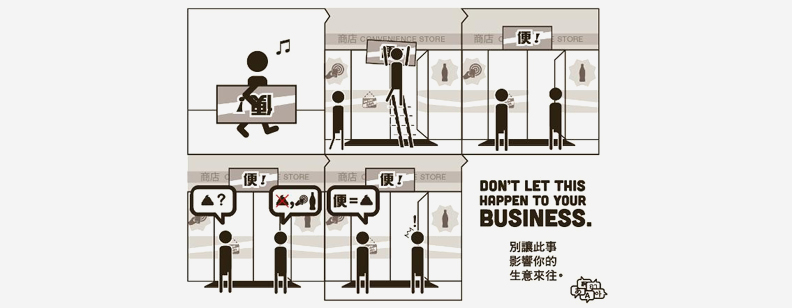An erroneously translated sign will attract wrong kind of attention to the business hence damage the reputation of the company. There have been so many errors that have emerged in the marketing while translating from English to Chinese or Chinese to English.
Chinese is challenging to translate for a few reasons. It is written with many of unique typescripts called ideographs. These typescripts comprise of two components – a significant indicating the meaning of a word, and a phonetic indicating the sound. Most of the mistakes among native Chinese speakers are caused by so called language interference, when the rules of the 1st language (Chinese) are applied for the 2nd language (English).
There is not one single Chinese language, but many different versions or dialects including Wu, Cantonese and Taiwanese. Northern Chinese, also known as Mandarin, is the mother tongue of about 70% of Chinese speakers and is the accepted written language for all Chinese. Belonging to two different language families, English and Chinese have many significant differences. This makes learning English a serious challenge for Chinese native speakers.
The above comic shows how a sign board for a convenience store was translated incorrectly from English to Chinese. The owner does not realize that the word “convenience” has two different meanings in Chinese language.
When a sign says “slip carefully” instead of “be careful because of the slippery floor” or you see people dining at a place called “Translation server error” (thanks to machine translation), you would know how seriously inaccurate English translation can be. But why is this the case? Is it because translation service in China is very expensive and in-affordable for people? Is proper English translation that hard to come by?
Although businesses can always enjoy low translation costs in China or free machine translation, but on the cost of your quality and brand image for a small saving? Mostly not. The Shanghai Maritime Court recently heard a case that hinged on basic translation errors where “dry docking” was mistranslated as “tank washing,” and “except fuel used for domestic service” as “except fuel used for domestic flights.” This gave rise to costly arguments among the Chinese and foreign parties regarding their corresponding rights and responsibilities under the contract.
Today’s interconnected world and its perpetually fluctuating markets make proper English translation a must. The large-scale internet allows right to use to limitless options and innumerable translation or language service providers. Agencies and freelancers are easily reachable all around; whether high-end organizations for big jobs or tested and tried freelancers for less significant assignments; capitalizing a little time and money in proper translation is certainly worth it.
Read Also: Four types of Fatal Errors in Chinese-English Translation
If you think you identify yourself here, don’t despair. Once these drawbacks have been recognized, they can be effortlessly fixed. Fortunately not a single of the issues listed are so serious that they would cause misconception or misinterpretations.
Take a look at how we helped our client by localizing their project for Chinese language. Click here to read the complete case study









